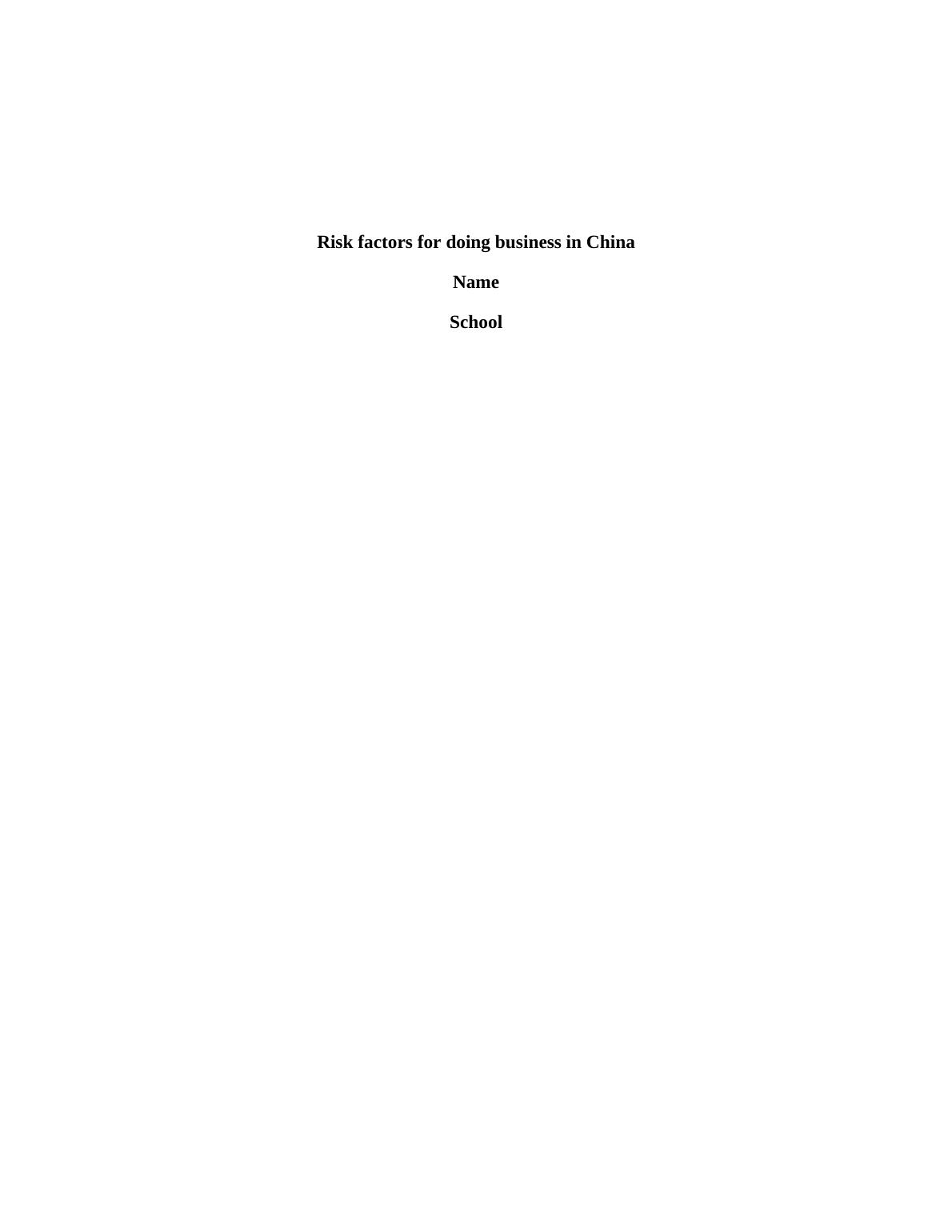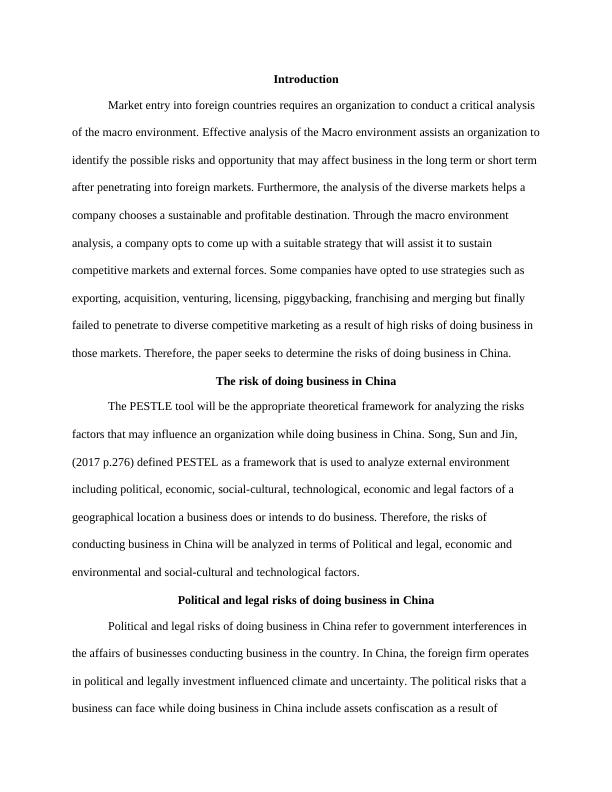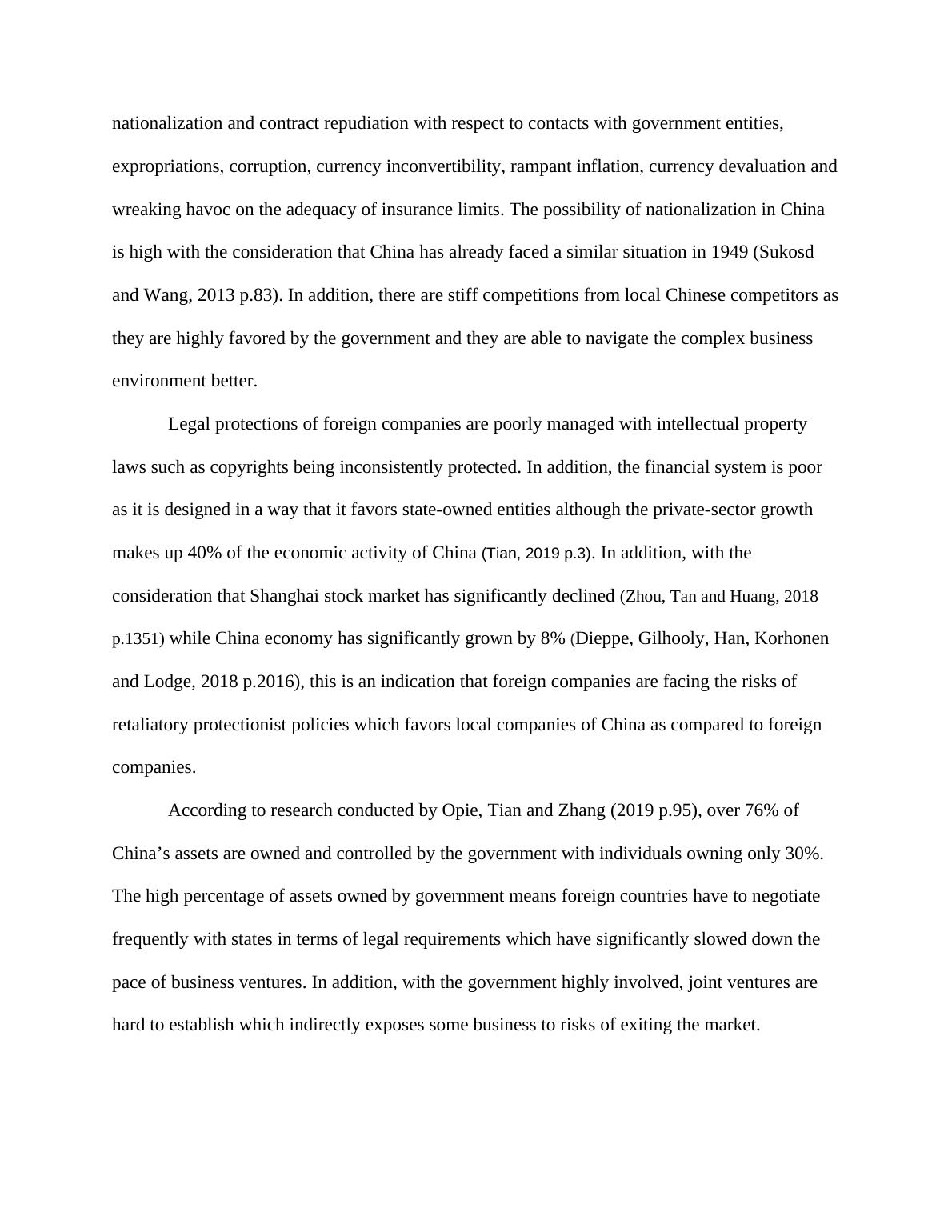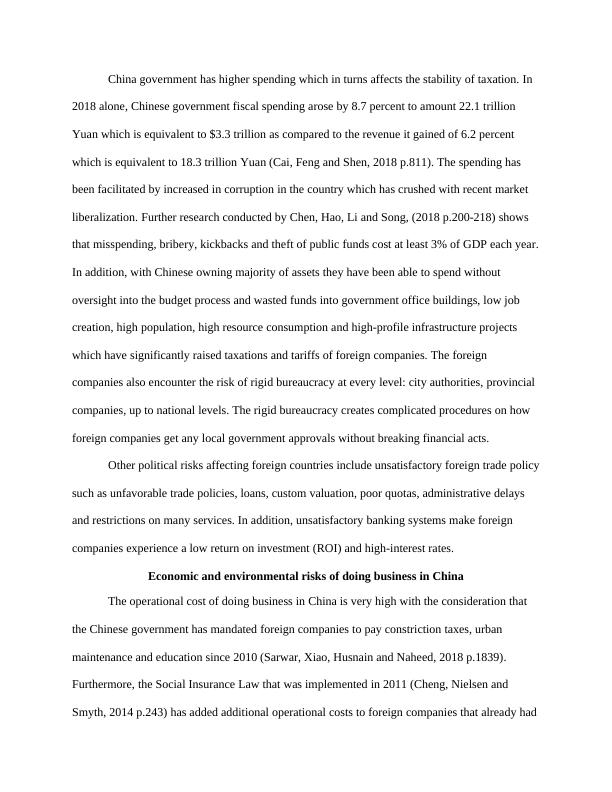Risk Factors for Doing Business in China
Select a specific country and evaluate the main risk factors for an organization considering doing business in that country.
11 Pages2672 Words82 Views
Added on 2023-03-23
About This Document
This article discusses the risks of doing business in China, focusing on political and legal, economic and environmental, and socio-cultural and technological factors. It explores issues such as government interference, intellectual property protection, high operational costs, inflation, language barriers, labor shortages, and cultural differences. Understanding these risks is crucial for foreign companies planning to enter the Chinese market.
Risk Factors for Doing Business in China
Select a specific country and evaluate the main risk factors for an organization considering doing business in that country.
Added on 2023-03-23
ShareRelated Documents
End of preview
Want to access all the pages? Upload your documents or become a member.
Report on International Business: Doc
|18
|3329
|117
Analysis of China's Political Economy for Foreign Direct Investment
|13
|2254
|302
Competitive Strategy | Report
|8
|2118
|19
Analysis of South Africa and China for Expansion of AUSMED
|20
|4287
|76
Business Attractiveness of China: A PESTEL Analysis
|25
|4223
|66
Business Strategy: Accenture Analysis and Strategic Growth Plan
|14
|4482
|401




